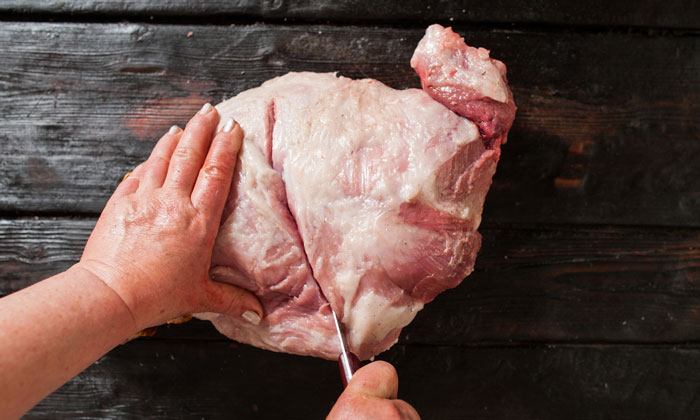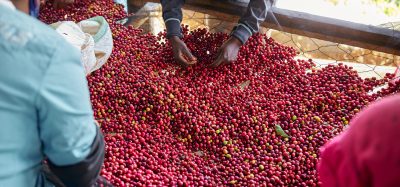A look towards… Food Brexit: The International Meat Trade Association
- Like
- Digg
- Del
- Tumblr
- VKontakte
- Buffer
- Love This
- Odnoklassniki
- Meneame
- Blogger
- Amazon
- Yahoo Mail
- Gmail
- AOL
- Newsvine
- HackerNews
- Evernote
- MySpace
- Mail.ru
- Viadeo
- Line
- Comments
- Yummly
- SMS
- Viber
- Telegram
- Subscribe
- Skype
- Facebook Messenger
- Kakao
- LiveJournal
- Yammer
- Edgar
- Fintel
- Mix
- Instapaper
- Copy Link
Posted: 21 August 2017 | Katie Doherty, Policy Director at The International Meat Trade Association, Roy Manuell | Junior Editor | No comments yet
In a new series in which New Food looks forward to the upcoming ‘Food Brexit’ event, we speak to Katie Doherty, Policy Director at The International Meat Trade Association who will speaking in London in October.


Admittedly it’s very hard to estimate Brexit’s precise impact on the food and beverage industry, but what might be the key to success in life outside the EU for the British industry?
I have two key areas of concern on Brexit’s potential impact on the food and drink industry:
1) Tariffs in the agriculture sector are significantly higher than in any other sector. It is often frustrating to hear ‘but the average MFN tariff is only 3-4%’ as a representative of the meat industry. If the UK adopts the EU schedule as is being suggested and you look at the EU schedule of full duty you are looking at the equivalent of 50-60% in some cases especially for beef and lamb with the highest duty rates. So if there is no deal between the EU and the UK the post-Brexit viability of exporting meat from the UK to the EU would be significantly threatened. Similarly the UK must ensure that any trade policy ensures the continued access to imported supplies at a rate lower than the full duty to ensure food security and affordability of protein all year round, for all consumers.
2) The other concern is in relation to ‘frictionless trade’. The imposition of customs clearance requirements between the EU and UK is one thing but veterinary checks at the border is a unique challenge for the food sector. Non-EU imports in to the EU are inspected by an official veterinarian at a special hygienic facility called a Border Inspection Post. This involves checking all documentation (e.g. health certificates) and checking that this tallies with the seal on the container. Then there are 20% physical checks on red meat and 50% on poultry meat. This physical check can include sending samples to a laboratory for testing. For fresh poultry meat which comes both from the UK and from neighbours in the EU due to their geographical proximity this would be a particular challenge due to its short shelf-life. Some lab test turnaround times can be longer than a week which would mean this product would need freezing down and a significant loss of value to the supplier but also potential threats to consumer choice. I know these are also challenges for the fresh produce and dairy sectors which face their own checks at the point of import.
So success would mean addressing both the tariff challenge and the unique challenges for frictionless trade in the food sector.
From a regulatory perspective, do you think Brexit might present a positive opportunity for reform?
Largely EU regulation in the food sector works very well and we wouldn’t want to see any substantial changes. However, there will certainly be a significant opportunity for the UK to establish a more transparent process for consulting on new regulations and for some Government authorities a change in attitude to how they interact with business. Whatever system for consultation and parliamentary scrutiny the UK adopts it must be agile enough to respond to the changing regulatory environment as required.
There are great prospects for the UK to negotiate ambitious Free Trade deals with the likes of New Zealand, Australia and others which will provide exposure to the global trading sphere. This new environment call the UK to examine its regulatory framework.
In terms of FTAs what do you think the UK needs to do to prepare for going it alone in international trade?
Trade has been the competency of the European Commission and so the UK is on a steep learning curve – both in government and in industry. The mechanisms for consultation with stakeholders on FTAs need to be put in place and fast. The likes of the US have sophisticated, long-established frameworks which the UK must look to in order to be ready to negotiate in several directions at once. Industry will need to undergo training in how to engage on FTA negotiations as well as government to understand how best to influence the UK position and where possible industry can provide a bridge to industry in the partner country.
How do you think companies should be preparing for day one of Brexit?
It is very difficult for companies to prepare as there are so many possible outcomes on the table. At the moment we are advising members to plan for the worst (the so called ‘WTO option’) as it is clearer what that would mean for the industry. It is a particular challenge for SMEs to take themselves out of their day to day where they are trying to survive in quite a tricky economic environment and analyse what the impacts of different outcomes could be for their business. In the meat industry companies run on very tight margins and so ensuring day to day profitability of the business is key to survival. IMTA is trying to help companies navigate the potential impacts for companies but with such a vast range of potential outcomes this is very tricky.
Specifically looking forward to Food Brexit in October, what do you hope to get out of the conference?
I am looking forward to the conference in October as the agenda covers some of the key issues that the meat sector will need to address and it will be interesting to hear the views of other speakers on how this might be done.







